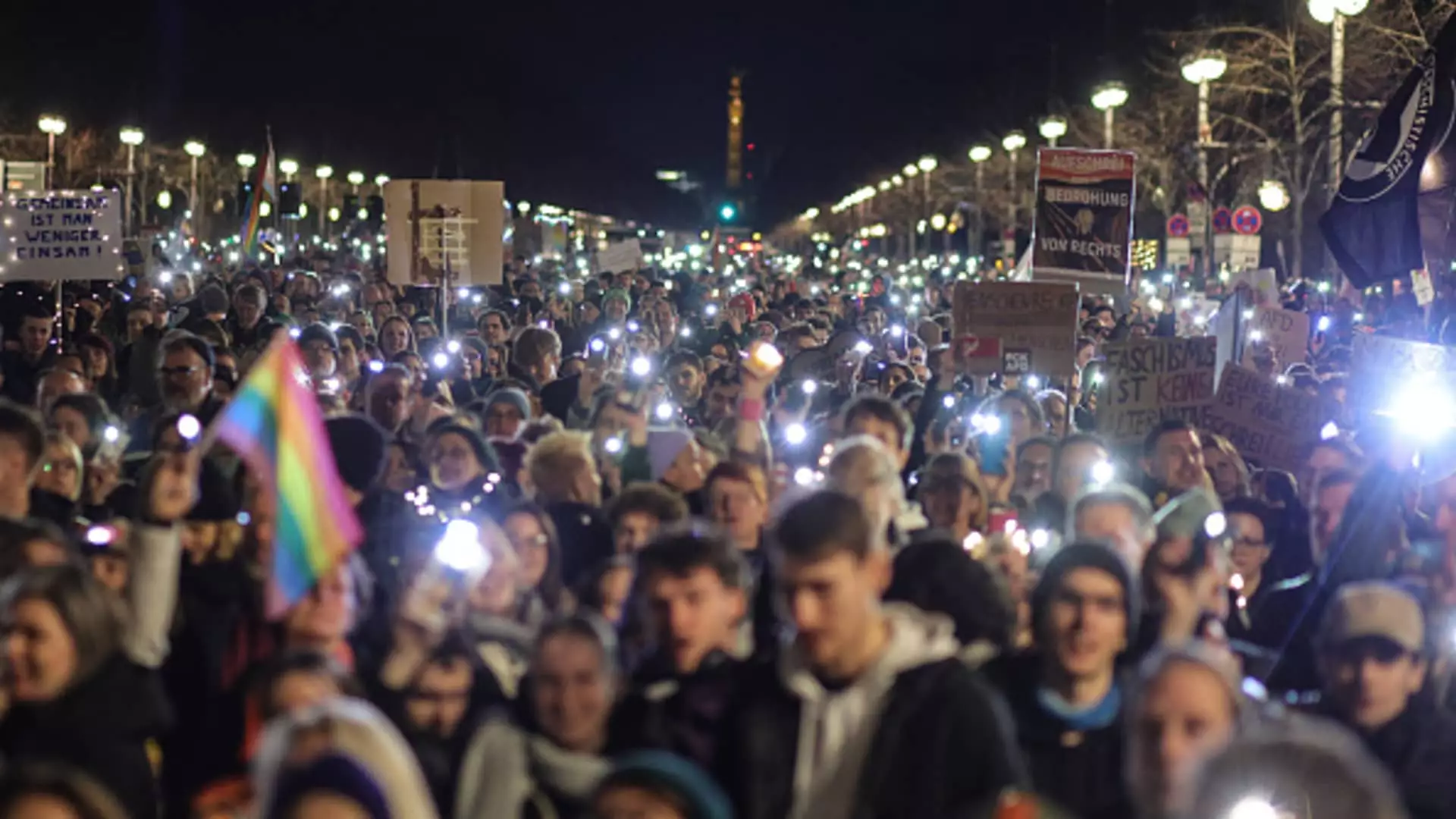In a powerful display of opposition, tens of thousands of Germans took to the streets on Saturday to protest the escalating presence of the far-right Alternative for Germany (AfD) party. Massive demonstrations unfolded in Berlin and cities across the nation, signaling a collective rejection of extremist ideologies as the nation prepares for the upcoming general election on February 23. Protesters, gathered at Berlin’s iconic Brandenburg Gate, utilized whistles, chants, and placards to voice their dissent, emphasizing the urgent need for a unified stand against rising xenophobia.
Activists and citizens alike expressed their commitment to combating not only local extremism but also the broader implications of right-wing movements across Europe and international developments, including the governance of the United States under President Donald Trump. Luisa Neubauer, a prominent figure from the Fridays for Future climate movement, took the opportunity to highlight the intersection of racism and climate issues, underscoring that the rhetoric targeting immigrants and environmental protections jeopardizes lives and societal well-being.
Germany’s political landscape has been tumultuous in recent months, with Chancellor Olaf Scholz’s three-party coalition faltering over internal disputes concerning economic revitalization amid stagnation. Against this backdrop, the protests coincided with the AfD’s launch of their election campaign in Halle, adding additional urgency to the public’s response. AfD leader Alice Weidel’s address to a crowd of supporters, coupled with backing from controversial figures like Elon Musk, underscores the party’s provocative positioning within present-day politics.
The uproar surrounding Musk’s support has highlighted the complexities of political endorsements, showcasing the entwined nature of globalization with national sentiments. Meanwhile, mainstream political entities have solidified their stance against collaboration with the AfD, reinforcing a collective effort to marginalize the party. The center-right Union bloc, currently leading pre-election polls, poses a potential threat to the AfD’s growing influence, yet their strategy raises concerns about continuing to engage on migration policies that could inadvertently align with extremist agendas.
With looming discussions about toughening migration policies, the Union bloc’s candidate for chancellor, Friedrich Merz, faces scrutiny as they strive to navigate the delicate balance between addressing public sentiment on immigration while distancing themselves from the AfD. Merz’s recent declarations to increase deportations and enforce stringent border controls place him in precarious territory, particularly if parliamentary actions gain traction through AfD support.
The upcoming elections herald a crucial point in Germany’s political evolution. The resilience shown by citizens in protest signifies a collective awareness and rejection of divisive politics that threaten the democratic fabric of the nation. With both national and European landscapes shifting under the pressures of right-wing populism and anti-immigrant sentiment, the resolve exhibited in the streets of Berlin and beyond serves as a clarion call to all progressive forces: a multi-faceted approach to combat extremism is imperative for safeguarding democracy and fostering an inclusive society.

